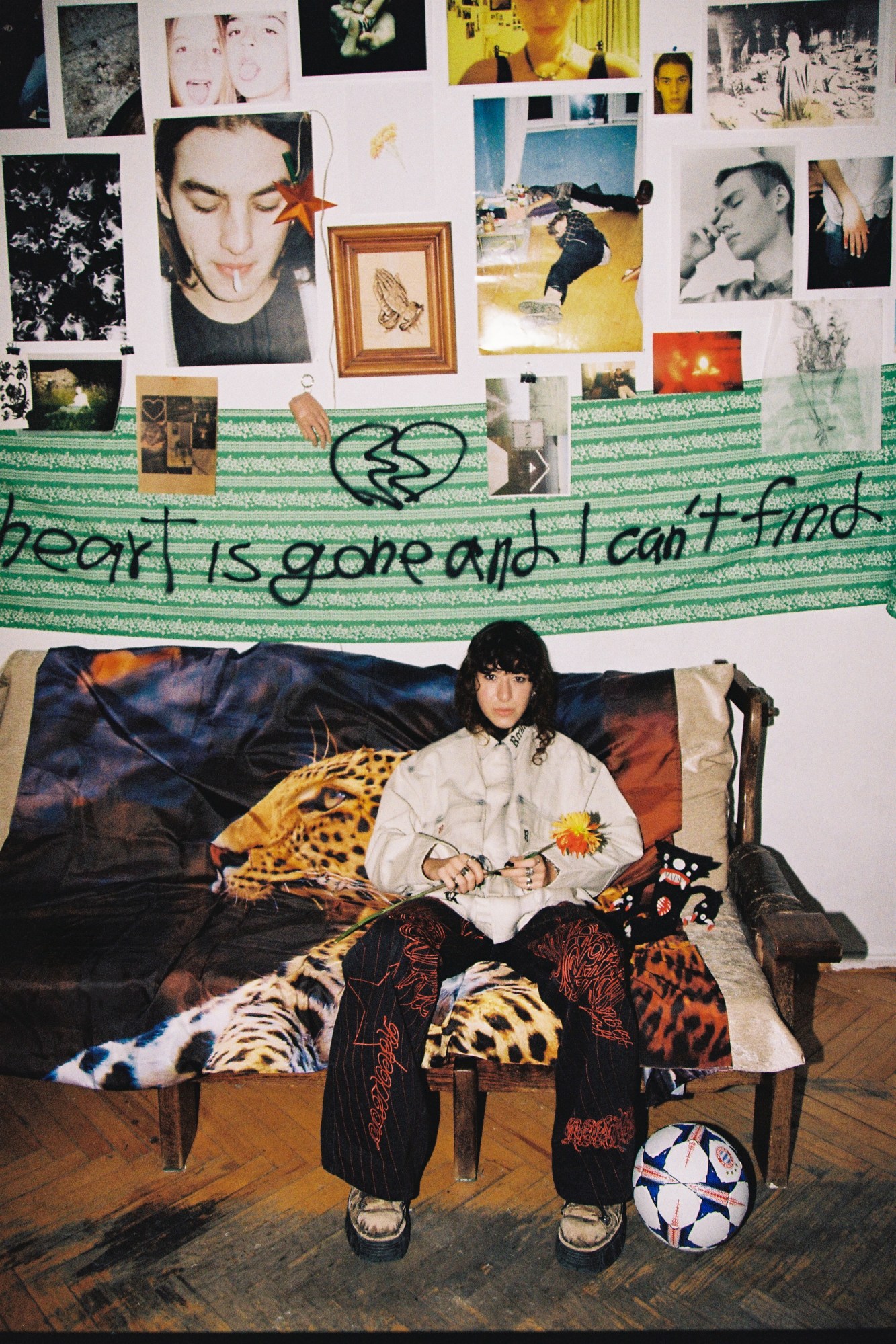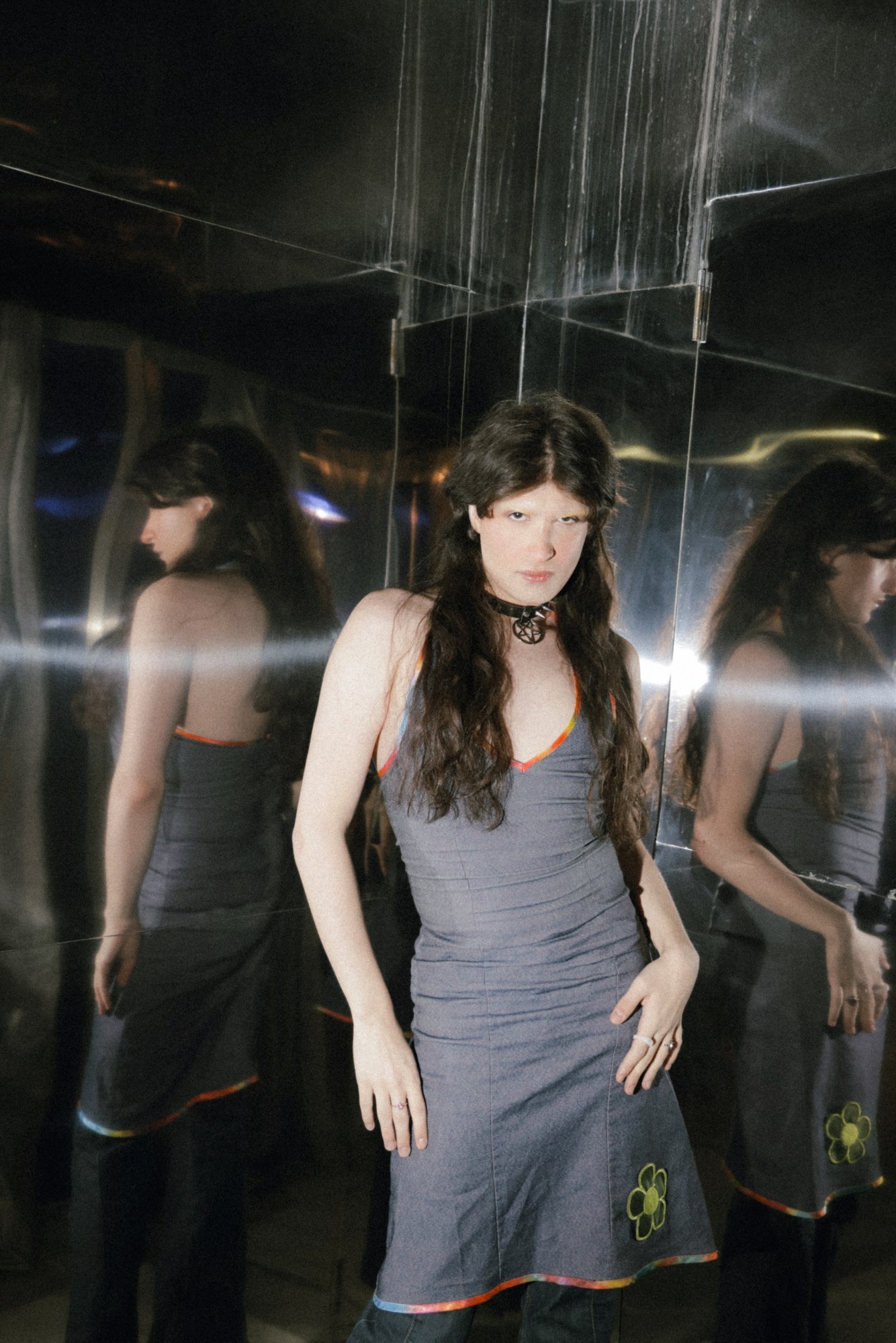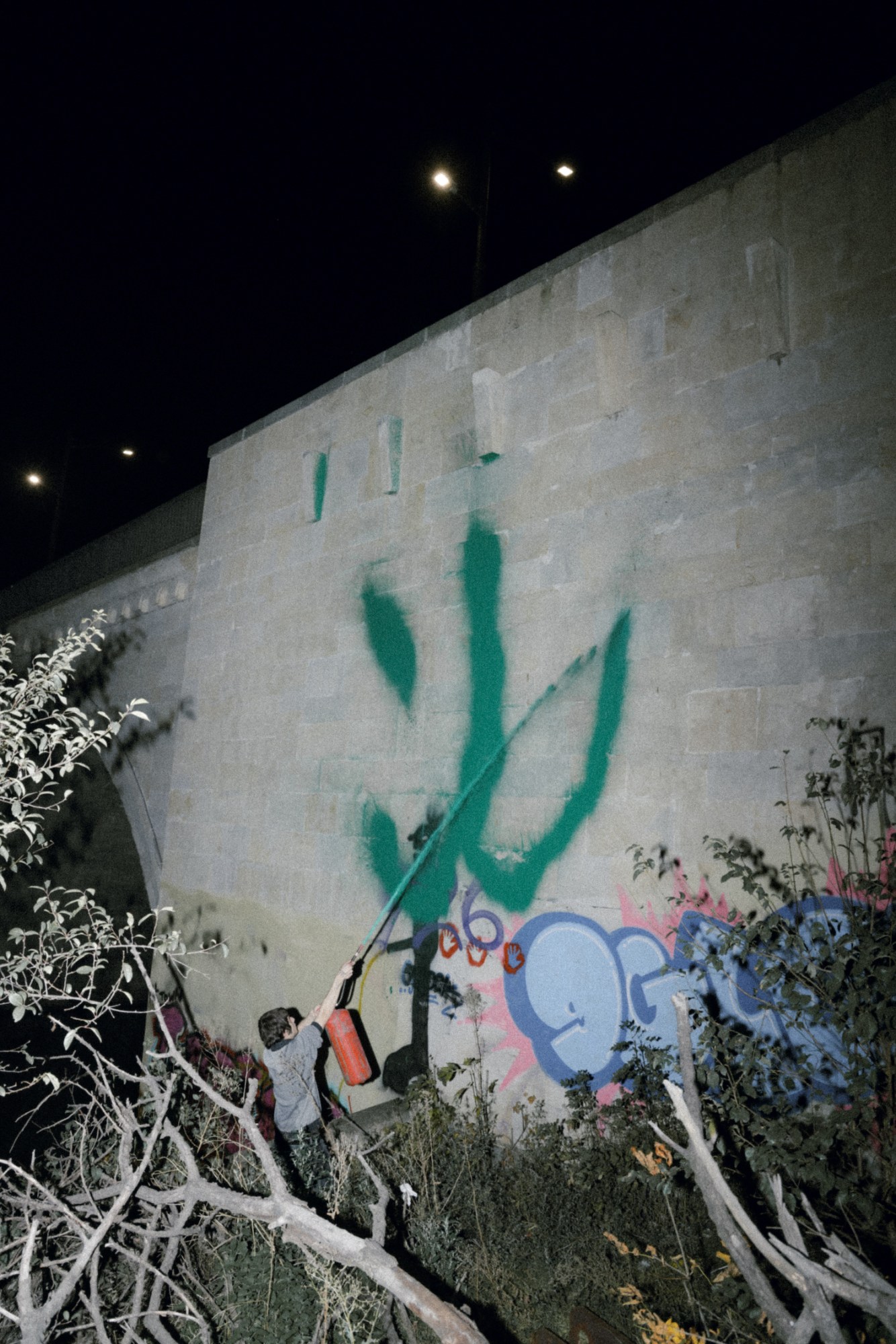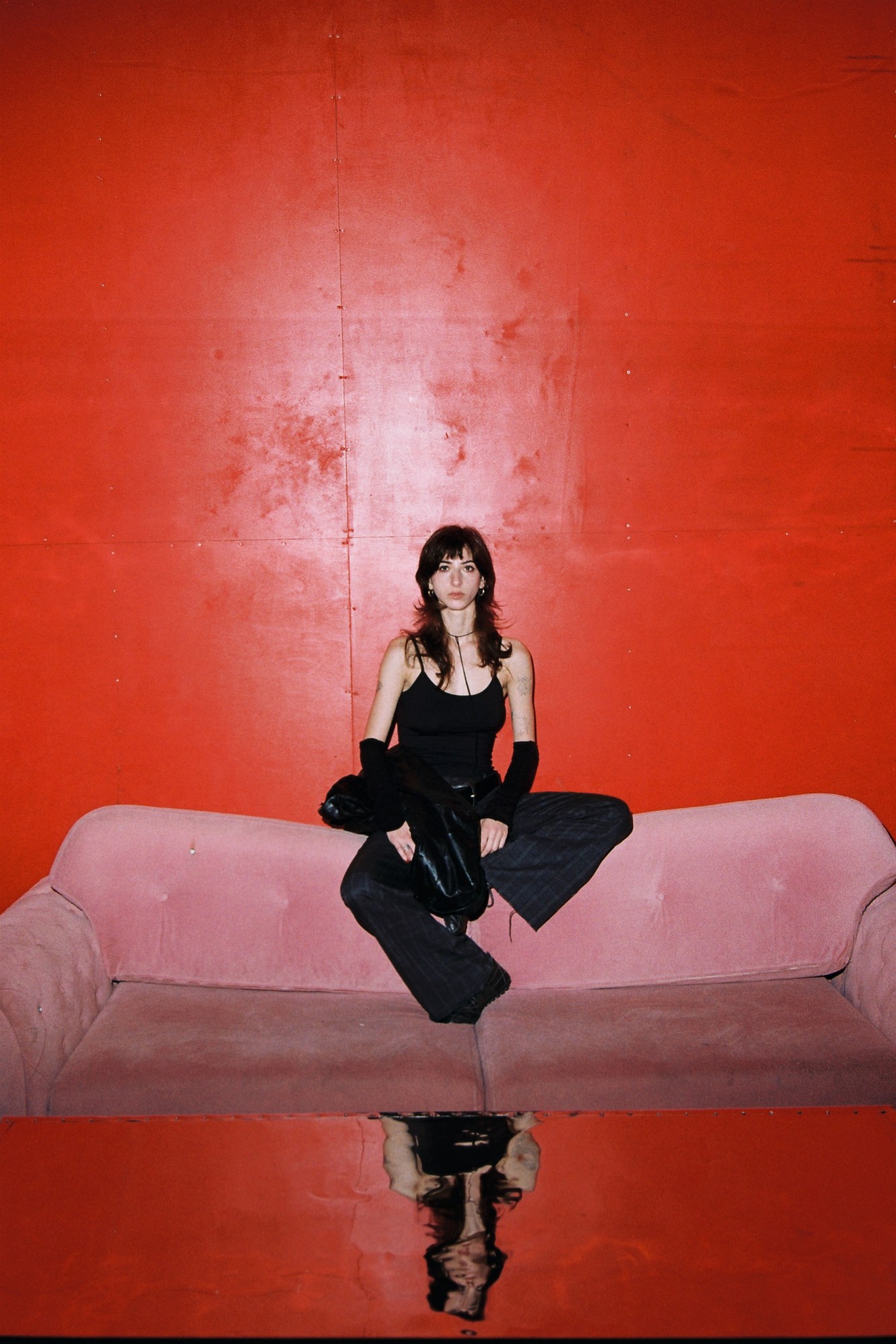Since the waning of the pandemic, Tbilisi, once known as a techno mecca — the new ‘new Berlin!’ — replete with underground clubs like Bassiani and Khidi, has undergone a metamorphosis. Granted, its techno legacy has continued to be upheld in the eyes of some, but a new chapter in the Georgian capital’s nightlife scene has been ushered in, with a younger generation exploring horizons far beyond four-to-the-floor beats.
In a conservative Orthodox country like Georgia — with a mainstream societal framework mired with deep-seated homophobia, misogyny and economic inequality — clubs have long served as rare safe harbours for people to express themselves freely and without judgment. When the clubs closed down during the pandemic, the absence of these safe spaces was acutely felt. Reflecting on the unexpected shockwaves that Covid sent through our lives, it’s become clear how the city and its creative, countercultural communities have undergone significant transformations, altering the look, feel and sound of Tbilisi’s nightlife in turn.
The city’s clubs impose an age restriction of 18, and, as such, those who came of age during the 19-month-long lockdown weren’t able to experience the hedonistic club culture — one that offered respite to those sick and tired of living in a country rife with socioeconomic inequality and repression; that offered a fever dream-like space to briefly forget harsh realities and get lost in the music. Unable to even try and sneak into clubs on account of their closure, this new generation took to throwing raucous house parties. And what did they play? Well, certainly not techno; a genre ill-suited to the domestic soundsystems and inherently social vibe of any good house party. And as the city open up again, Tbilisi found itself with a generation of kids with an entirely different perspective on what made for a good party — and as the scene’s old heads discovered the approach and mindset of this new wave, more and more of them agreed.
Tbilisi then found itself with a new slate of go-to spots, where techno was no longer the dominant sound; where once, whether during the club raids in 2018, a 130BPM thudder was seen as the only appropriate anthem of freedom, fight and resistance. A two-year lockdown showed us that there’s much more to it than that. Whether it’s techno, breakbeat, hyperpop or the sound of police sirens, with their approach to partying, Gen Z are proving that there’s a way to groove to anything. And new clubs like Left Bank, Tes and Tbili Orgia had been quick to adapt to this ethos, embracing new genres that resonate with contemporary aesthetics, giving young people the space they needed to explore, innovate and experiment. In this evolving landscape, new genres like deconstructed club, EDM, happy hardcore, trap and jersey club have taken root; themed parties hosted by rappers, queer artists and skater kids, along with new post-ambient music live performances, have all become part of the scene.
Here, we meet some of the kids who, along with other folks, are responsible for radically reshaping the zeitgeist of post-pandemic Tbilisi.

Masu, 22, photographer
What do you do?
I’m a multimedia artist, freelance photographer and co-founder of fashion brand Reckless.
Why do you shoot mostly teenagers?
My generation was born after the transition from the collapse of the Soviet Union and the subsequent civil war. Unlike our parents, who were primarily focused on basic survival, we were the first to truly acknowledge the significance of mental health. Our parents find it hard to understand us; they can’t comprehend how we can have necessities like food on the table and still be unhappy. I realised that others in my generation share my experiences — we were the first ones to shift from survival mode to the rhythm of everyday life. I believe we’re the most creative generation ever, constantly seeking the brighter side of life. It’s important to document the archive of these kids’ experiences.
How did the pandemic affect you?
I started university right when the pandemic hit. This was also when we launched Reckless. Going to university was a big change for me, and the pandemic added to it all. But I got into music and discovered a lot of new things. Those covid days felt like a prep school for life, and then it was like: “Well that’s life, let’s fucking go!”
Where do you like partying?
I like going to Left Bank, Tes and Tbili Orgia because they always offer alternative music and vibes. These clubs are great for listening to music, but also for talking to people and sharing your emotions, which is the best way to meet others. On the other hand, places like Bassiani and Khidi are more mysterious and immersive, where you can go and get lost, which is also necessary sometimes. But after the lockdown, our generation is all looking for more connection.
What sound best describes Tbilisi for you?
Emo rap & witch house.

Valley Dolly, 22, DJ and Producer
What do you do?
I’m a producer, sound designer and a DJ. In the middle of a wild party, I might drop some Celine Dion if it feels right to me. It might disrupt the vibe, but I think that’s the beauty of it.
When did you start with music?
I got into music when I was 18. I began working at the Drama Bar, and that really fuelled my passion for music. I wanted to start DJing back then, but the pandemic got in the way.
How did the pandemic impact you?
I spent a lot of time on Discord, where I connected with a group of talented producers. Inspired by them, I decided to start making my own productions. As for DJing, it happened by chance. I was asked to DJ at Success Bar, and I had a vast collection of hyperpop music that I wanted to share, so I agreed. I also played at Left Bank and Tbili Orgia in the following months. But despite my passion for deconstructed club and experimental sounds, I realised that not everyone understood this music. So, I’ve been more selective in my sound choices lately.
Why is every young Georgian’s ultimate destination the club?
People come to the club because we share common values. We stand against homophobia, avoid labelling people and challenge the system. Moreover, where else should I go? Even if I didn’t go to the club, all of my friends would be there. I like sitting at home, but every time I stay home I miss out on the best parties.
How does living in a conservative country with widespread homophobia affect you?
It’s not limited to homophobia, the entire country seems to be trapped in a hole. Instead of focusing on progress, our government seems to be fixated on holding people back. It’s all about propaganda…
I dislike going out on the streets. There are times when I simply want to take a casual walk, in a good mood and dressed unremarkably. People on the street look at me with such hate, as if I’m some sort of maniac. The worst thing is that these people turn a blind eye to everything except homosexuality and queerness. It’s crucial that we promote responsible internet use. I once saw my relative’s Facebook feed, and the suggested posts were alarming. If I were to read such posts regularly, even I might become homophobic. My relative is liberal, and I can only imagine what’s happening on the Facebook feeds of more conservative people.

Illtown Crew, skate & graffiti artists
What do you do?
Mainly having fun with friends, filming skate clips and doing graffiti.
Why the name Illtown?
We don’t really know. It just came out of nowhere; it was a word we were tagging on the walls at the time, but we think the word describes the way we approach what we do. At first, we didn’t plan to have a team. One of us was recording videos, and the rest of us were just skating. Over time, we collected two years’ worth of great video footage. Then, we gathered together, some of us with skills in editing, others in animation and that’s how our crew came into existence.
Why do you think your films are important?
In 2019, a friend gave us a Sony Handycam, and it was super comfy to carry around everywhere. Because of that, we ended up with a lot of video material. After a year, when I looked at the footage, I realised that we could create something really special. Filming skate videos on the streets of Tbilisi is a fascinating experience, with its old Soviet architecture that we repurpose as skate spots. It’s also a challenge due to Tbilisi’s complex infrastructure. This sets us apart in the European skateboarding scene.
Where do you like partying?
We don’t really mess with clubs in our city that much, we only show up if it’s our friends playing or if it’s us throwing a party.
Why did you start throwing parties?
Because skateboarding isn’t just about skating; it’s also about having a good time. We wanted to share this fun with people and have them enjoy it with us.
What sound best describes Tbilisi for you?
Search ‘goofy ahh’ sound compilations on YouTube and that’s it.

Lola, 22, DJ and painter
What do you do?
I’m a multidisciplinary artist. I first started painting in 2017, and within two years, I also took up DJing. Music has always been the biggest inspiration and I’ve often drawn from the music I listen to in my art. I started quite suddenly when my cousin asked me to select some music for his show on Mutant Radio. I had second thoughts because I was concerned that people would not understand my music. However, I eventually agreed because I enjoy trying new things.
What did you think people wouldn’t understand?
I was worried that people wouldn’t get my music because it combines a wide variety of genres, uses all sorts of human voices and has unconventional rhythms. It’s a bit experimental, mixing many things differently than usual. To my surprise, there were those who did appreciate it. Left Bank offered me a residency, which made me incredibly happy.
What are your experiences at Left Bank?
I joined the team approximately two years ago, and it has turned out to be one of the best decisions in my life. The people around me at Left Bank created such a comfortable and supportive environment that I was able to quickly learn and grow. To me, it’s an open doorway to new experiences, diverse sounds and a welcoming community.
Do you think the music scene changed after the pandemic?
I believe that there’s a constant need for innovation in music, fashion or any other field. People crave fresh experiences, they need to see and hear something beyond the usual. Art has the power to alter the chemistry of your brain and enhance your life, and it’s the younger generation that tends to be more drawn towards this.
What sound best describes Tbilisi for you?
Tbilisi, for me, echoes in the howling of the wind.
Credits
Photography Levan Maisuradze @leeonees


